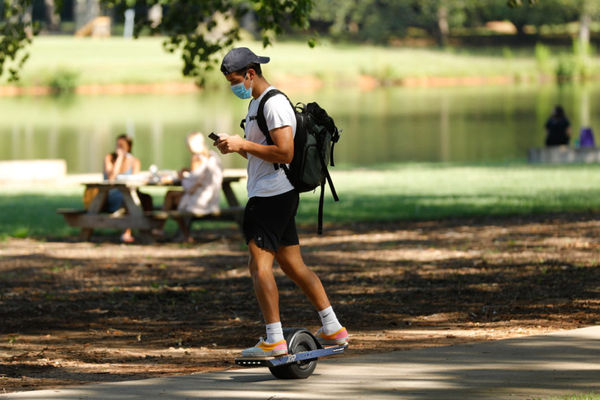Social media is toxic, and politics are making it worse. The positive, communal aspects of social media that previously existed by way of picturesque landscapes, photos, and funny videos have been tainted by the disunity of our national culture. Our identities on social media platforms are no longer our own, but belong to those we are voting for. While we, as humans, have an inherent right to think what we like and say how we feel, we seem unwilling to extend that right to others. We “cancel” others when they do not share our beliefs, yet we feel outrage when they reciprocate with different opinions.
Instagram stories are now littered with pointed fingers and angry words, and we cast hatred at those who do not agree with us in full. This rise of call-out culture has truly come at an inopportune time; social networking is vitally important in our new, physically distant reality, and a majority of personal connection is now virtual. Yet instead of a space to connect and plug in to our friend’s and family’s lives, platforms like Instagram and Twitter have transformed into war zones where people shout negative opinions over whispers of positive ones. What does this mean for our world? What problems does this negativity solve?
It solves nothing. Widespread online negativity does no good. Why degrade someone we oppose when instead we can uplift someone we support? Social media is lacking positivity and causing a slippery slope of pessimism that trickles into our lives and impacts us deeply. I do not feel fulfilled when I close Instagram anymore because almost all I see is hate. Instead of my friend’s face, I see the face of her political candidate of choice, or that of the candidate she opposes. Instead of an update on her life, I get an update on how much she dislikes those who disagree. This is not the social connection social media was intended to bring.
Aside from the cynicism that has recently leeched onto social media, people should reconsider using such platforms for politics. The uncontrolled nature of social media serves to provide an unreliable source of news, as much of what we see is opinion, twisted truth, or simply false. In a day and age where social media is America’s new pastime, this sort of constant misinformation could have disastrous consequences.
Many of us know someone who has unfollowed a friend on social media because of a difference in views, or even done it ourselves. It is sad, but surely true. Strong opinions are being forced upon us left and right, and when we do not agree, especially when the opinion is so strongly negative, many find it hard to see the person’s identity as separate from what they believe. Breaking free from this closed-minded habit of identifying someone wholly by their political identities is key.
No matter the situation, election, opinion, or belief, positivity benefits both society as a whole and the Furman campus. We need unity and community right now more than ever, and online connection is suddenly vital to the world in which we are living. So many of us use social media to meet, talk, and connect with each other, providing a satisfactory, although inefficient, way to meet new friends this year. Virtual contact is all we have, especially with the circumstances on campus. We as a campus and as a country need to remember what social media is about – connection and unity across lines in the sand.
